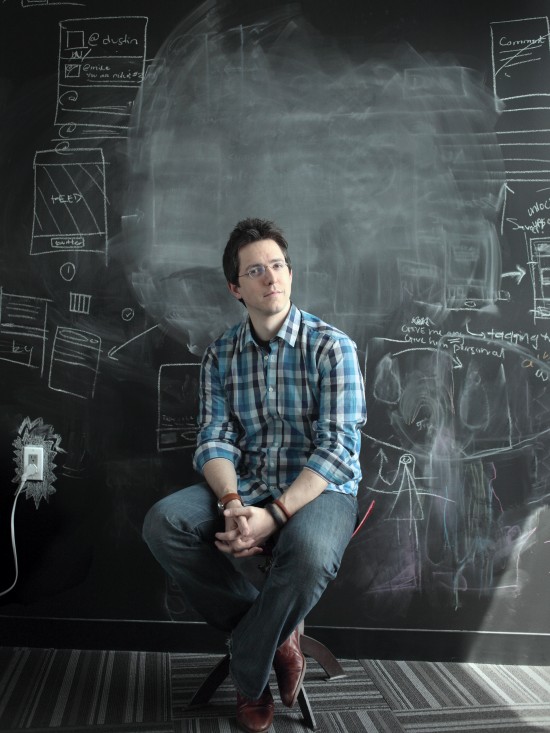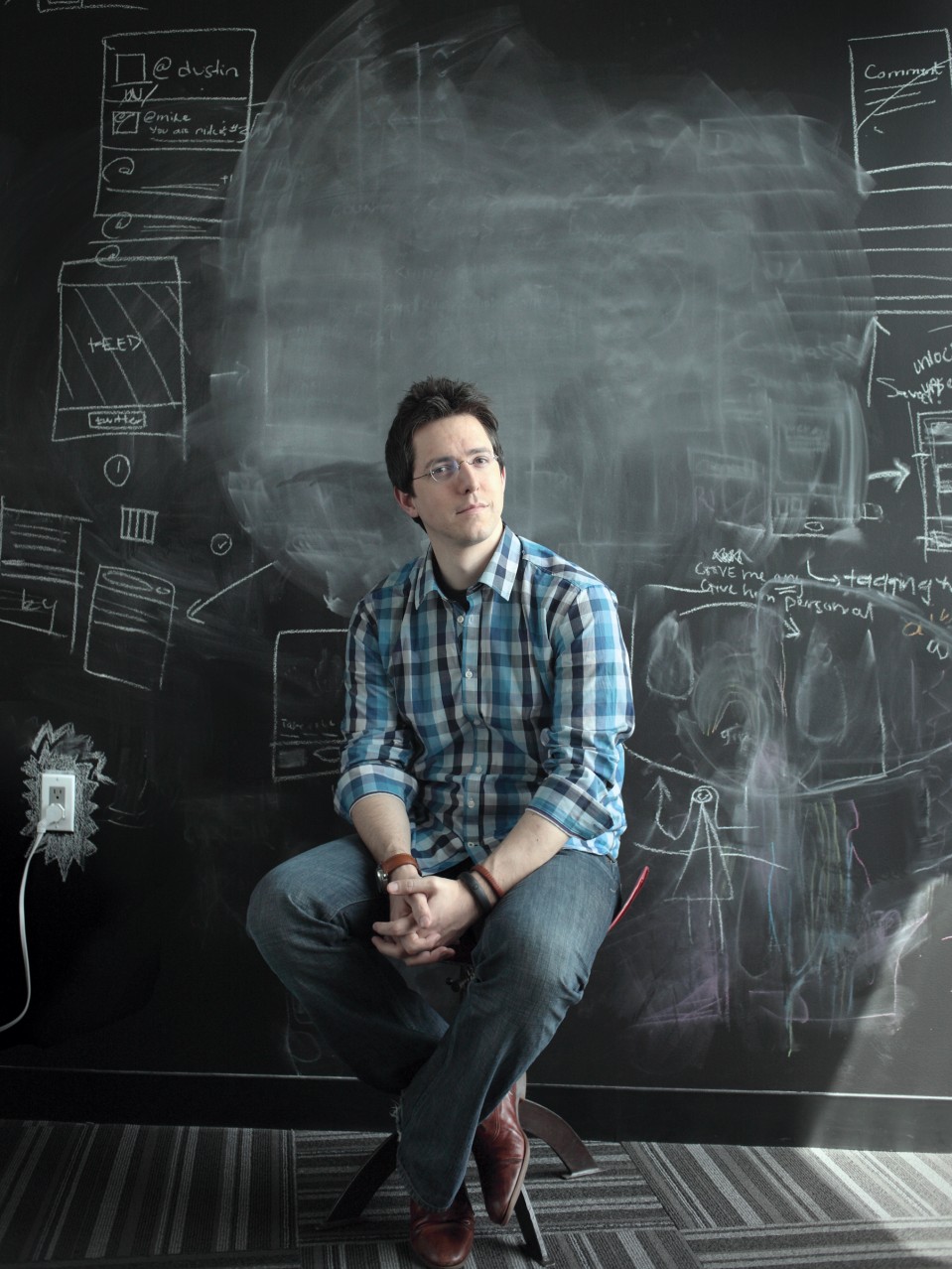Dave Morin
The creator of a social network for close friends and family says smart phones will make computing more intimate than PCs did.



Facebook and its competitors have given us virtual social circles unlike our real ones, lumping in work acquaintances alongside old friends. Dave Morin, an early employee of Facebook, launched his own company, Path, in 2010 to offer a social network just for close friends and family.
Path users can add only 150 people to their networks, and they access the service exclusively through a smart-phone app that evokes a personal journal. They log their “path” through life with photos and updates on where they are or what music they’re listening to, all while reading about the paths of their friends.
Path has attracted over two million users and $11 million of investment funding. But the company was accused of violating its users’ privacy this February when a blogger discovered that its iPhone app copied people’s address books onto Path’s servers without asking permission. Morin, 31, a respected figure in Silicon Valley because of his history at Facebook and recent record of investing in promising startups, was forced to apologize.
Technology Review IT editor Tom Simonite spoke with Morin about that incident and the benefits of private social networks.
TR : Why do people feel the need for a more private, more limited social network?
Morin: If you ask people why they didn’t put all the photos on their phone on Facebook, they say, “They’re too personal.” But people e-mail and text these photos to friends and family. The volume of that kind of sharing is really high, and we want to make that more high-fidelity.
Even today, whether they have 10 friends or 100 [on Path], people still say to us that they need more privacy.
Why does it have to work only on a mobile phone?
People actually communicate with a very small set of people using their phones. You text and call and share with your inner circle.
[And] I really buy Steve Jobs’s notion that the future of computing is these things that we carry around in our hand. The future is not just phones; it’s wearable computers that give you more data about your everyday life. Our job is to be a trusted place for that data and to give you beautiful visualizations and stories to add to your path about it.
Path has a very striking, polished design. Why was that important?
We felt that the Web was a very cold and utilitarian place, oftentimes. One of our highest design goals was this idea of a home. Your personal life exists inside a home, and there’s this feeling of warmth and love that comes through being inside it. Mobile provided an opportunity to create this warm, colorful, deeply intimate place that you could trust.
You have to make money, but you say you’re opposed to the standard Web model of using everyone’s data to personalize ads.
We look to Asia, where a lot of networks, [such as] Mixi in Japan and 10cent [in China], provide a free service but allow you to personalize your experience in ways that users are willing to pay for. For example, we have a bunch of free photo filters, and then we have a series of paid ones. We want to say “Make your experience better—pay us directly” rather than “Give us all your data and we’ll work with advertisers to get messages in front of you that you might not care about.”
What happened in February? An earlier version of your app didn’t automatically upload users’ contacts to your servers. Then you made a decision to add that feature. Why?
The decision was based entirely on simplicity. We developed an algorithm that we call FriendRank, which looks at contact data [and] uses machine learning to figure out who might be your family and closest friends. Most social networks provide you with “Click this button and invite your entire address book,” which spams everyone. We were using technology to crunch the data and present to the user who we think they should connect to.
But you were taking contact data from devices. You thought people would be okay with that?
Yeah. And frankly, at that point it wasn’t clear that people weren’t okay with it.
When it became clear that this really bothered people, the only right thing to do was delete it all. We did it a day after. We created a dialog that says, “To help you find your close friends and family, we have to upload your contacts to our servers.”
A very large percentage of our users [have now] opted back in. In [the latest version of Path] we go a step further and we encrypt the whole set of data. Even if we wanted to look at it or we were hacked, it’s safe.